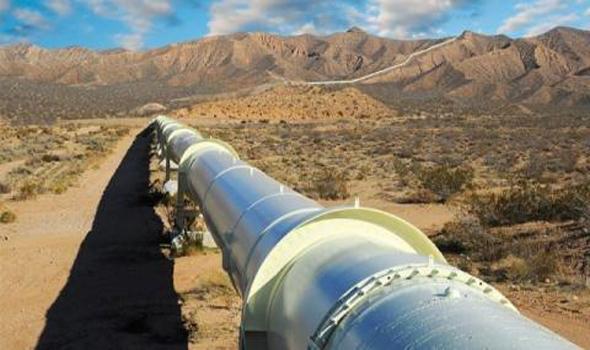
TANZANIA & UGANDA PIPELINE: $4 BLN

According to WSJ, the Ugandan and Tanzanian governments are trying to fast-track a $4 billion oil pipeline that would connect landlocked Uganda to foreign markets even though construction won't start in August as they originally indicated.
The companies behind what could be East Africa's first major oil pipeline believe the August start-date that Tanzanian officials gave last March for work on the 900-mile pipeline through Tanzania is unrealistic.
But the governments have made more progress in preparing the way for construction to start on the project that would transport Ugandan crude to the Tanzanian port of Tanga on the Indian Ocean, industry officials said.
Tanzanian and Ugandan government officials weren't immediately reachable for comment.
French oil giant Total SA, the UK-based Tullow Oil and Chinese state-owned oil company Cnooc Ltd. are the three firms developing Uganda's oil fields and all three companies are expected to invest in the Ugandan pipeline which will have an estimated capacity of 200,000 barrels a day.
For now, there is no definitive start date for construction in the absence of an official development plan, Total and Tullow officials said. Cnooc couldn't be reached for comment.
With no official development plan in place, it is certain that the construction phase is still several months away.
The overall aim is to keep Uganda on track with the goal of exporting its first crude reserves by 2020. Analysts and developers now say a 36-month timeline is the best- case scenario with work starting as soon as possible. If this was to go ahead as planned construction would be completed in mid-2019 allowing several months for testing and commissioning before the infrastructure became fully operational.
"Bear in mind in this industry, the project development is always long," Damien Steffan, a Total spokesperson, said in an email. "On average, it takes 10 to 15 years between the moment when you make a discovery and the moment of first-oil."
Uganda now ranks as the fourth-largest reserve for crude oil in sub-Saharan Africa with the discovery of 6.5 billion barrels of oil since 2006, of which 1.2 and 1.7 billion are recoverable, according to the International Monetary Fund.
Uganda's break-even price per barrel is estimated to be $60, according to Paul Bagabo, a Uganda-based consultant for the nonprofit organization Natural Resource Governance Institute. That is below current global crude prices, around $50 a barrel.
Mr. Bagabo said the relatively high cost of production in Uganda raises concerns that investors may be tempted to back out of infrastructure development if global prices fail to recover further.
To protect itself from any external oil price shocks, create jobs and provide domestic consumers with products such as gasoline and diesel, Uganda also plans to build a 60,000 b/barrels a day oil refinery in tandem with the pipeline.
"With the refinery we can opt to export while [the pipeline] completes," Mr. Bagabo said. "The refinery is critical for Uganda's specific interest and the interests of economic development."
The Ugandan government is in the final stages of acquiring land for the refinery which will be constructed and operated by the Russian state-owned firm, RT Global Resources, in the country's west near the town of Kabale, he said.
The Ugandan government officially announced its pipeline partnership with Tanzania in late April. This backtracked on a previous understanding with the Kenyan government that Uganda would jointly develop a pipeline that would run through Kenya.
The Tanzanian route, which a commissioned study said was cheaper and safer from attacks from militant groups like al-Shabaab, was also billed as a way to hasten the project.
Total and Tullow were initially at odds over the selected route. Tullow, which also has interests in Kenya's oil fields, supported a Kenyan pathway for the pipeline. In contrast, Total, the biggest stakeholder in Uganda's oil fields, is said to have lobbied hard for an alternative.
-----
Earlier:






